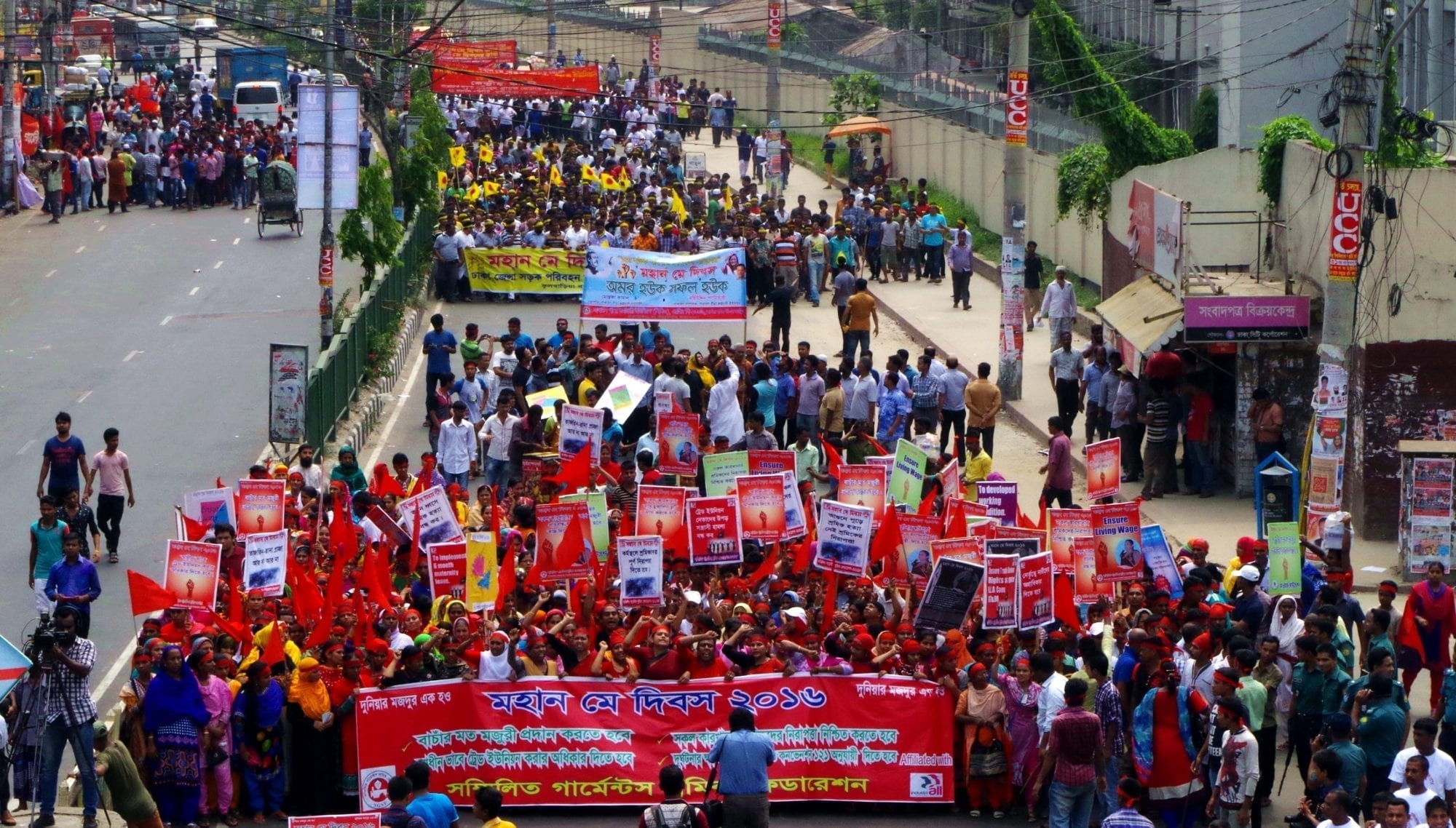In recent decades, the global economy has grown rapidly. But as global production has increased, so too has global inequality.
Inequality has skyrocketed.
Many governments have prioritized the interests of multinational corporations over those of workers–including fair wages, social protections and safe working conditions.
This approach has concentrated most of the wealth produced by millions of working people into the hands of only a few, and has made decent jobs increasingly precarious.
The Solidarity Center supports working people around the world as they stand together and fight for better wages and working conditions.
Learn more about how the Solidarity Center supports working people’s right to organize
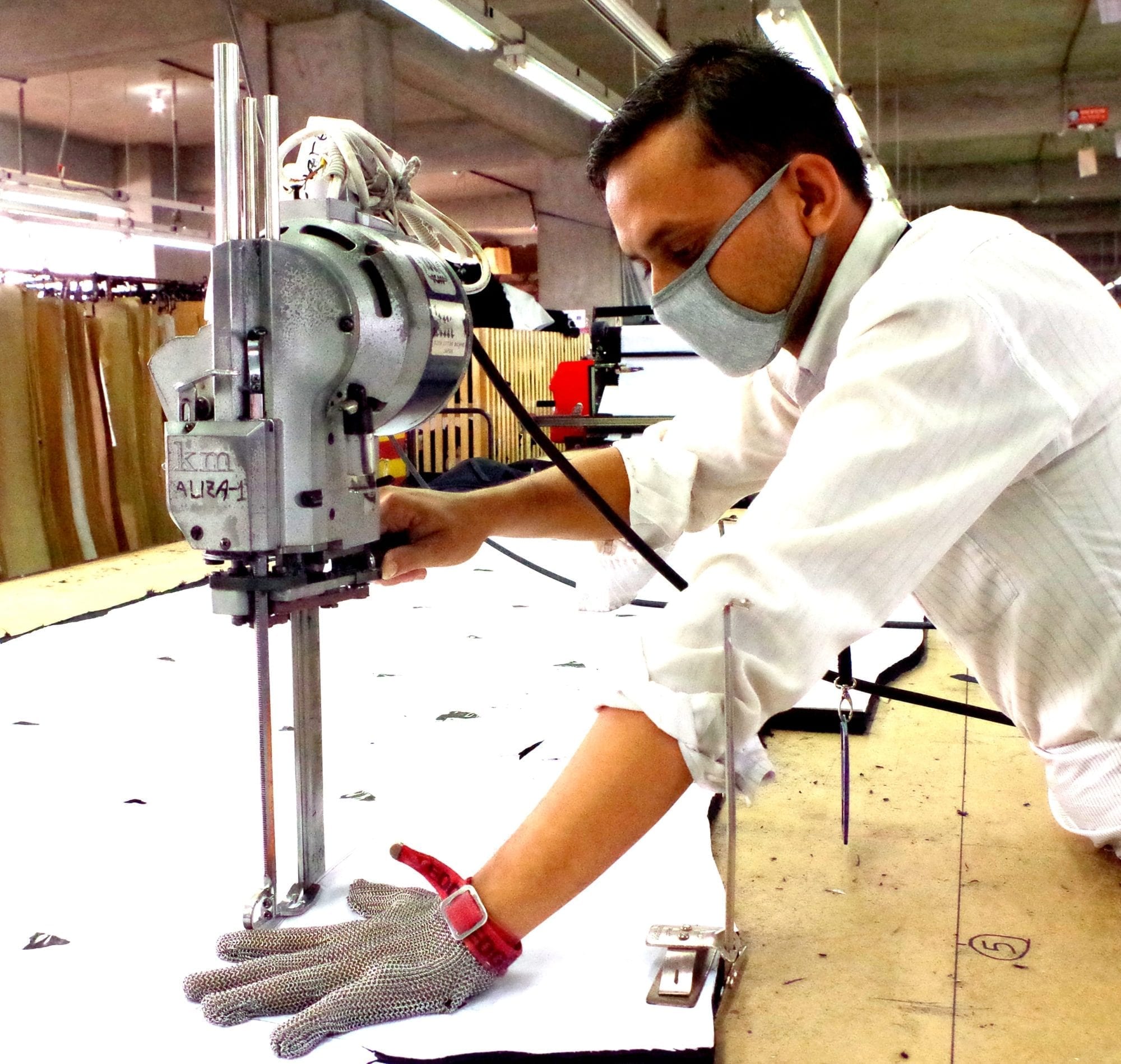
Ratan, a tailor in a Bangladesh factory. Credit: Solidarity Center
WORKERS ORGANIZE TO SAVE LIVES
With millions of workers denied their rights and dignity on the job, the global economy is rife with exploitation.
But when workers are able to exercise their right to freedom of association by collectively finding solutions to unjust practices and other workplace issues by forming and joining unions, they can protect themselves and each other from exploitation, support their families and secure the benefits of their own hard work.
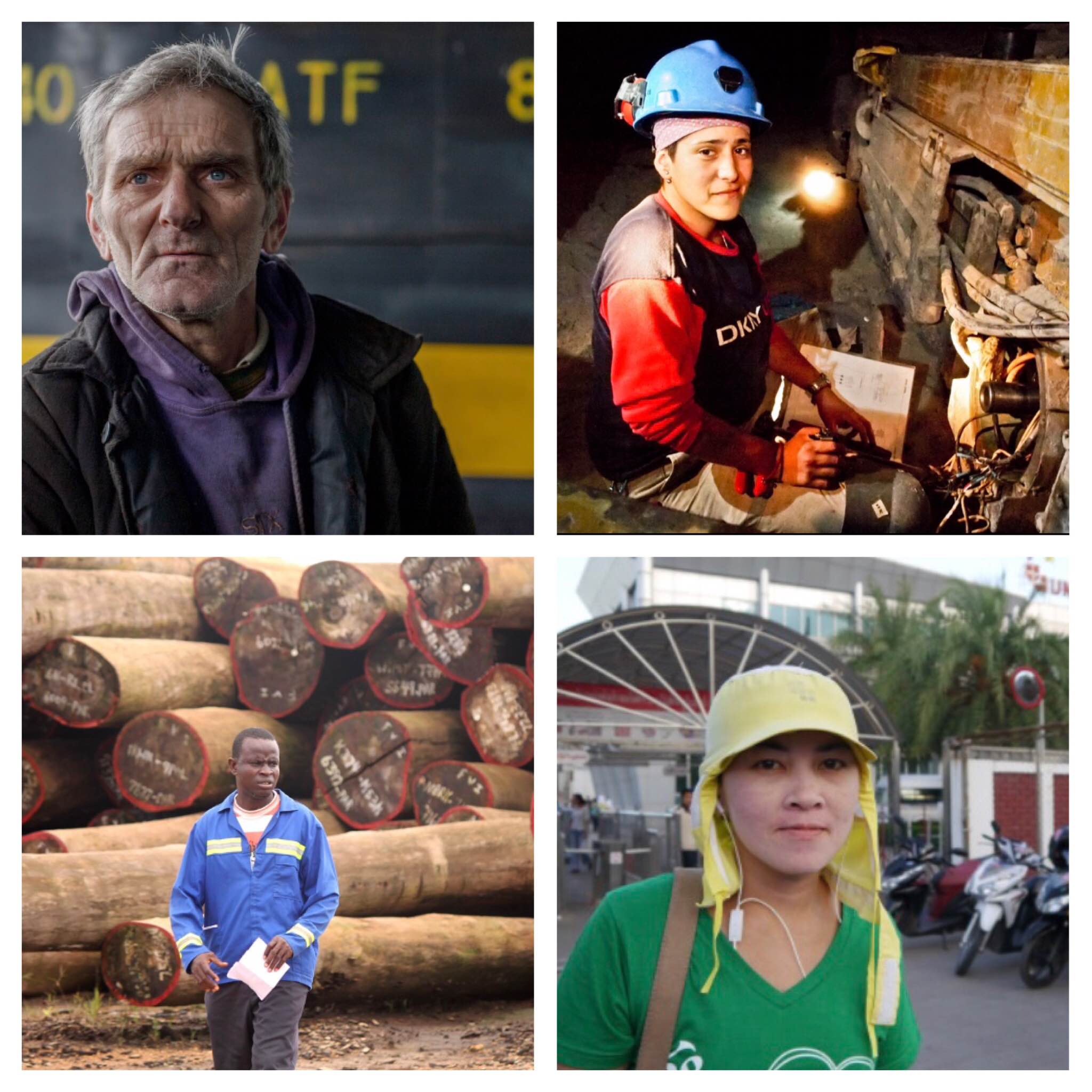
Credit: Solidarity Center/Lela Mepharishvili (top left)/Roberto Armocida (top right)/B.E. Diggs (bottom left)/Jeanne Hallacy (bottom right)
Workers may come from different parts of the world but fight for the same rights (as seen above).
Transport workers in Georgia formed a union to ensure their working conditions were safe. In Mexico, the Mineras de Acero (Women Mineworkers of Steel) help many women miners work safely.
Burmese migrant workers stand outside fish canning factories thinking about their options. In Liberia, workers and their unions played a crucial role in combating the spread of the Ebola virus.
WORKER RIGHTS = HUMAN RIGHTS
Our world and its globalized economy are changing at lightning pace, and it is critical that the tools we use to protect labor rights adapt just as quickly.
A first step towards that goal is to obliterate the antiquated and artificial distinction between labor rights and human rights.
Labor rights are human rights.
MAINA KIAI
Denying freedom of assembly and association isolates people in the workplace. On their own, workers often do not have enough leverage to negotiate with their employers and demand fair wages and safe working conditions for themselves and for their fellow workers.
Unions are helping to change that.
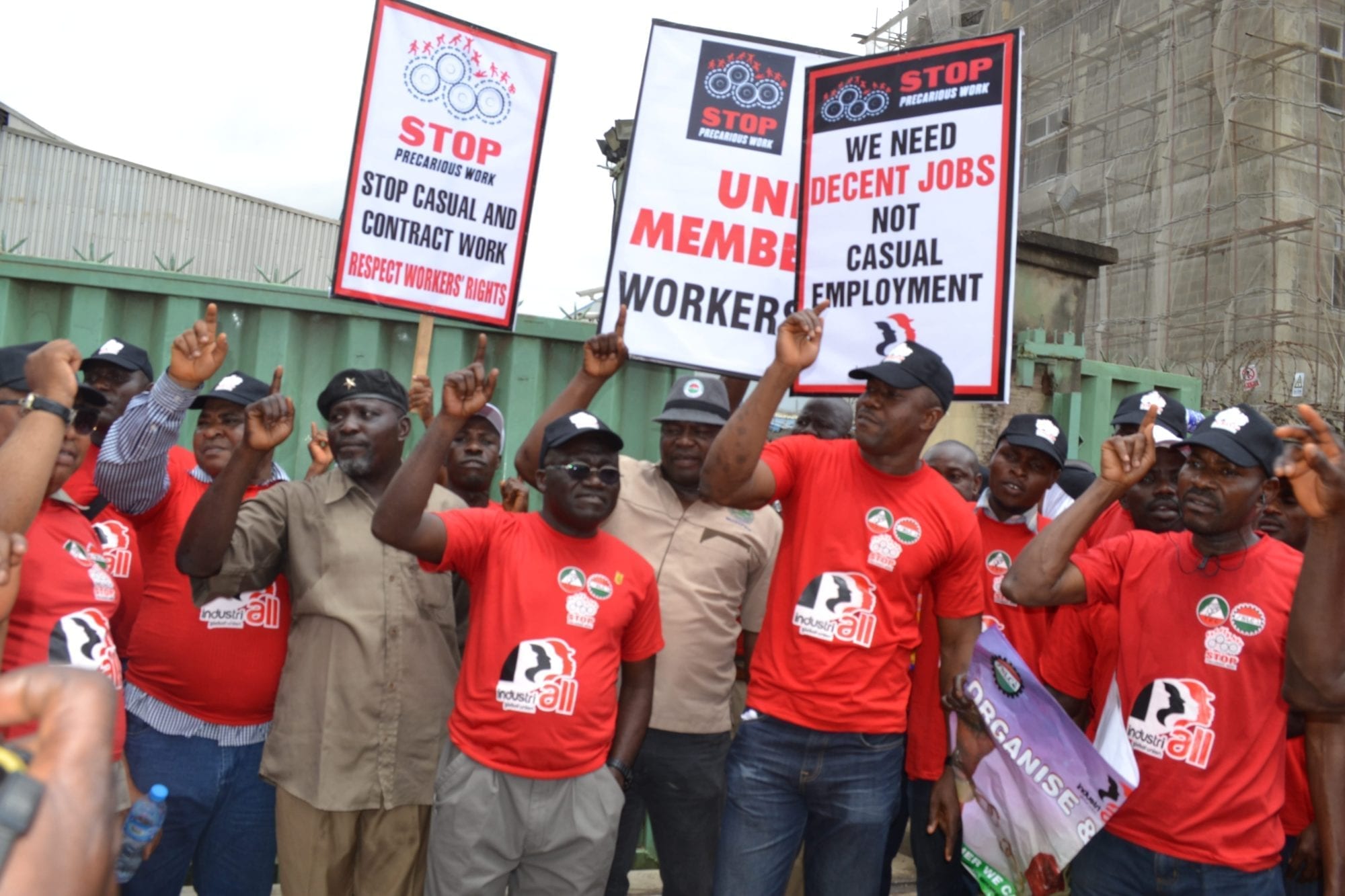
Members of several unions march for labor reforms in Nigeria on World Day for Decent Work. Credit: IndustriALL
WORKERS STAND TOGETHER
Despite many obstacles, millions of working people around the world are fighting to exercise their basic right to organize by creating and joining unions. In doing so, they gain access to many more rights on the job.
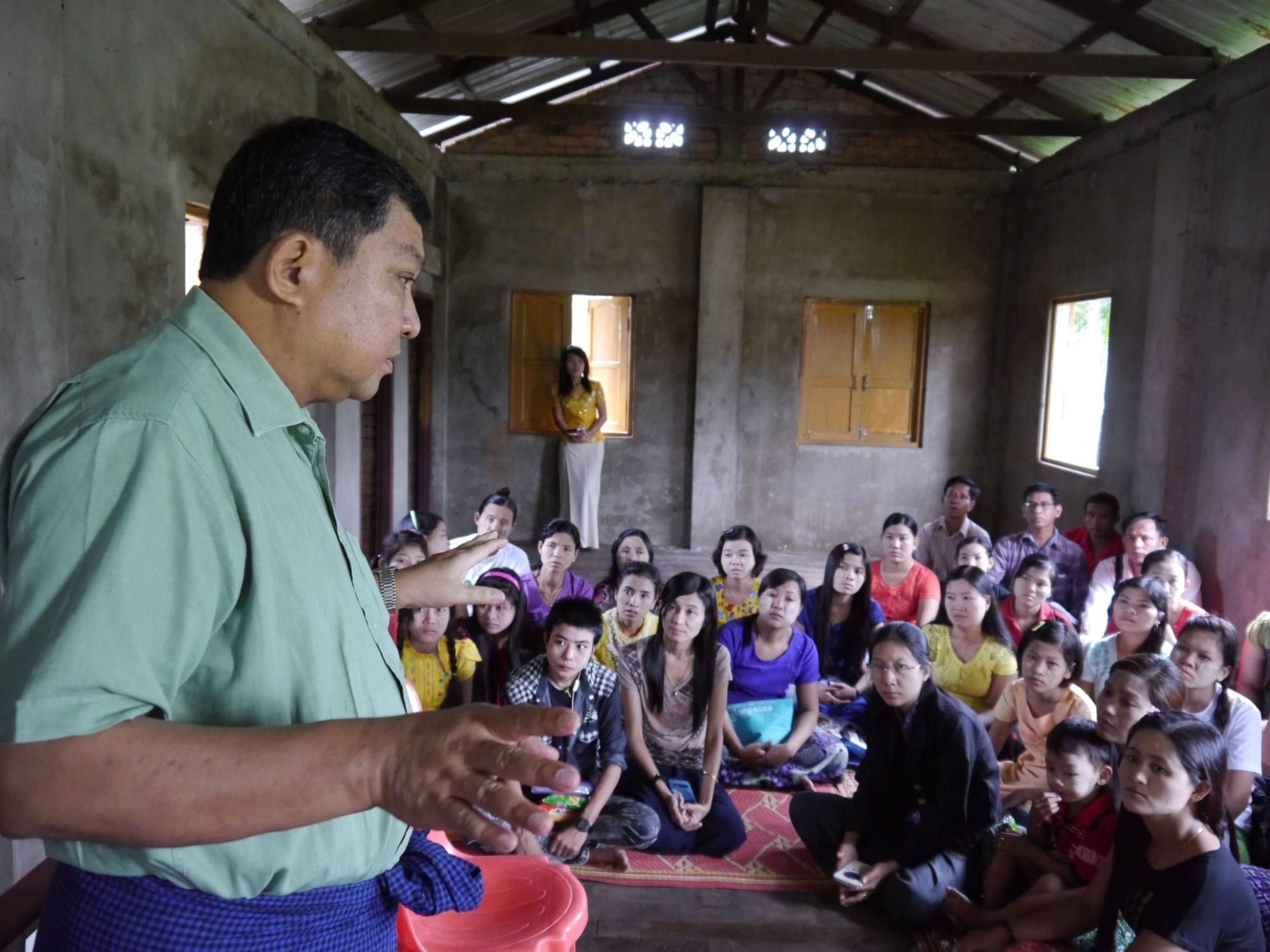
Maung Maung, president of the Confederation of Trade Unions of Myanmar (CTUM), speaks to over a hundred workers. Credit: Jeanne Hallacy
PROTECTING THE RIGHTS OF ALL
Many workers—including migrant, informal, domestic, and contract workers—find themselves in precarious situations because their work is not protected under national labor laws.
Unions strive to include these groups of workers in their negotiations with governments and employers to broaden and strengthen labor protections for everyone.
INFORMAL WORKERS
Contract workers in agriculture and workers in the informal economy, such as market vendors, have strengthened their collective voice through union activism.
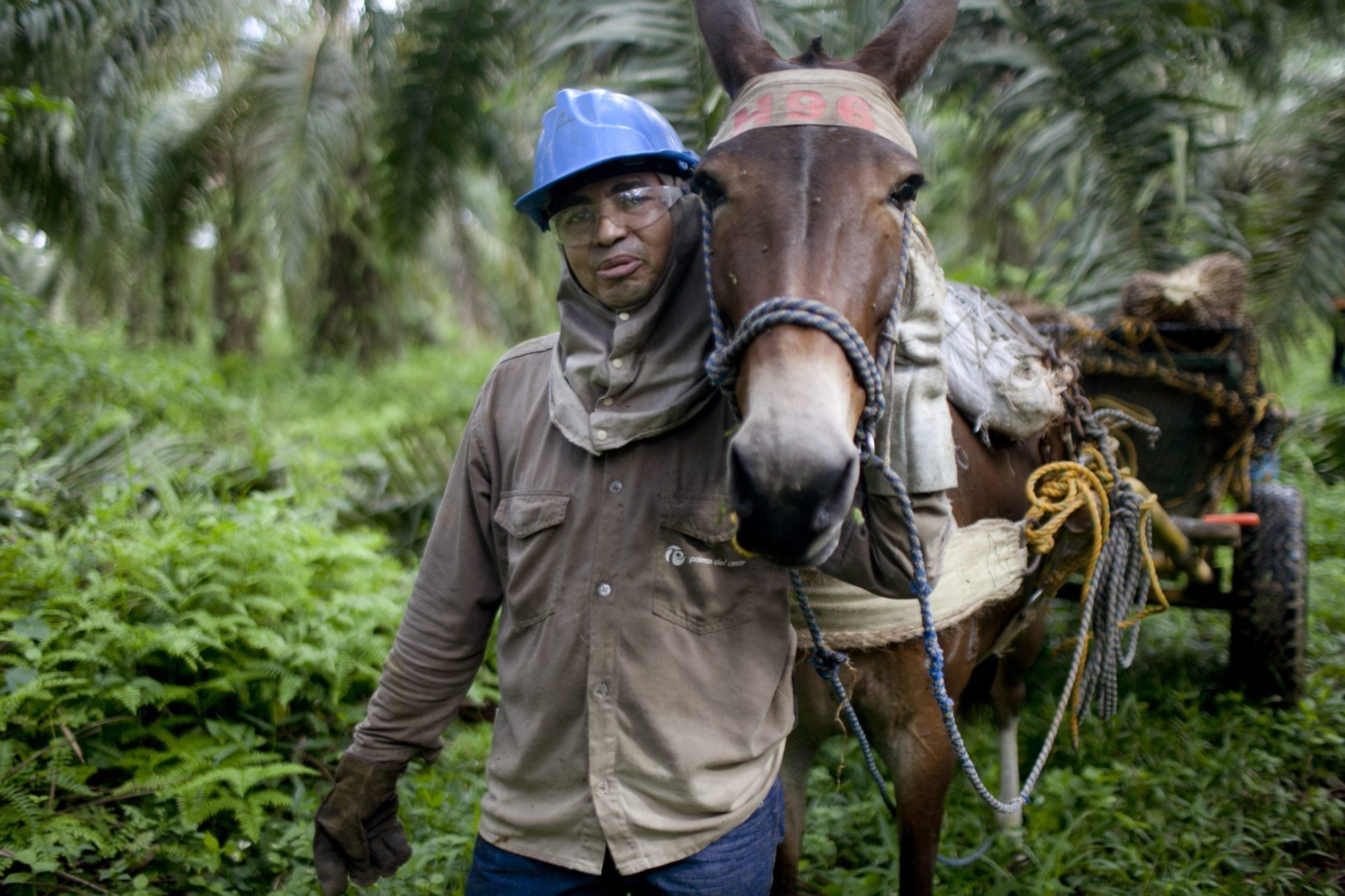
Mr. Cristo Humberto, an african palm fruit collector posses for the camera with his mule inside the plantation of Palmas del Cesar oil CO. Minas, Colombia, April 25, 2016.
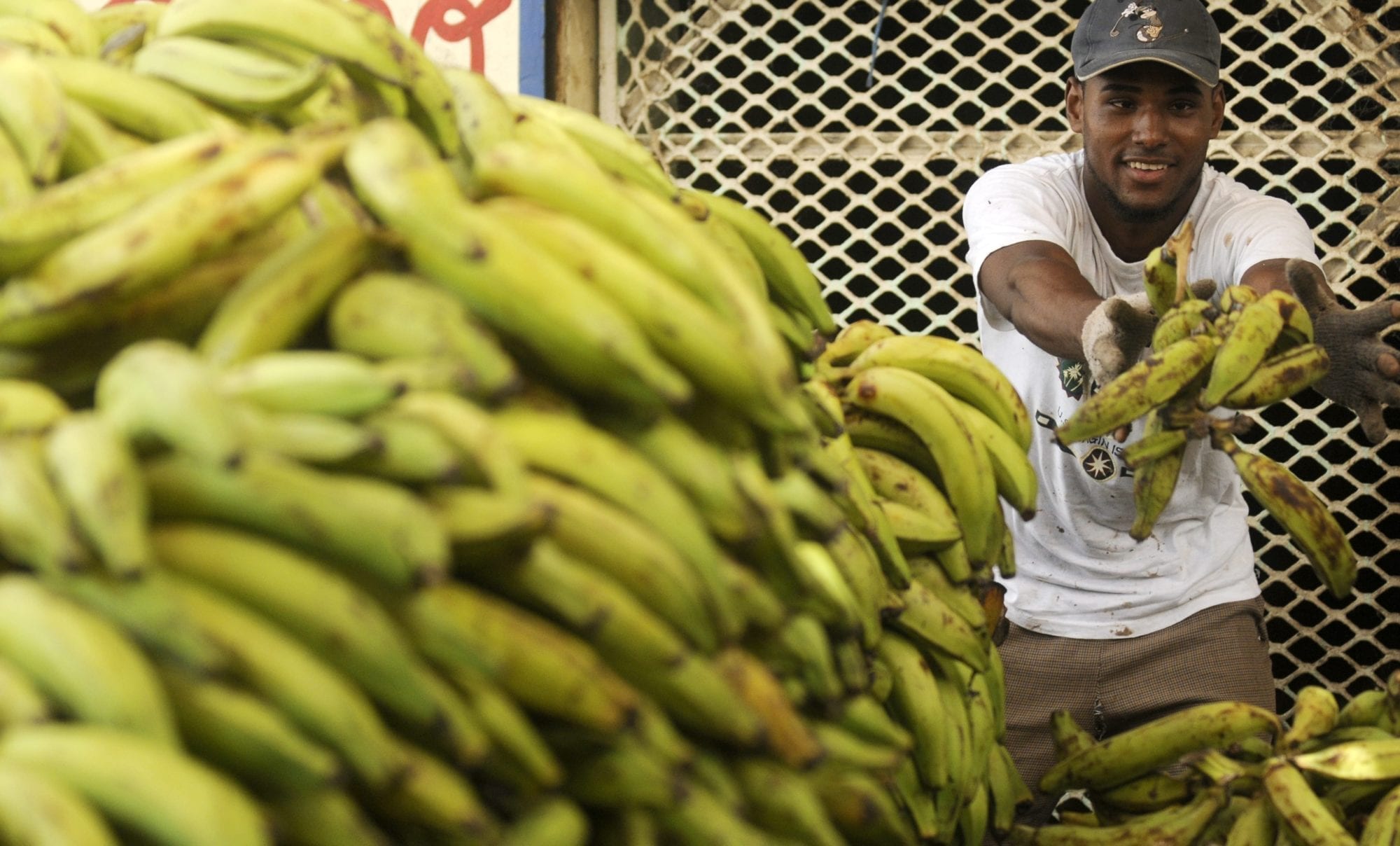
Joel De Los Santos sells his plantains in the Municipal Market of San Cristobal, July 28, 2014. SOLIDARITY CENTER /Ricardo Rojas.(DOMINICAN REPUBLIC – Tags: BUSINESS EMPLOYMENT SOCIETY MARKET )
MIGRANT WORKERS
Migrant workers are often denied their freedoms of peaceful assembly and of association because of their irregular status in their new communities.
Many migrant workers also fear that if they stand up for their rights by themselves, they may be fired and lose their ability to stay in the country.
With freedom of association, migrant workers can stand up for better wages and working conditions without fear.
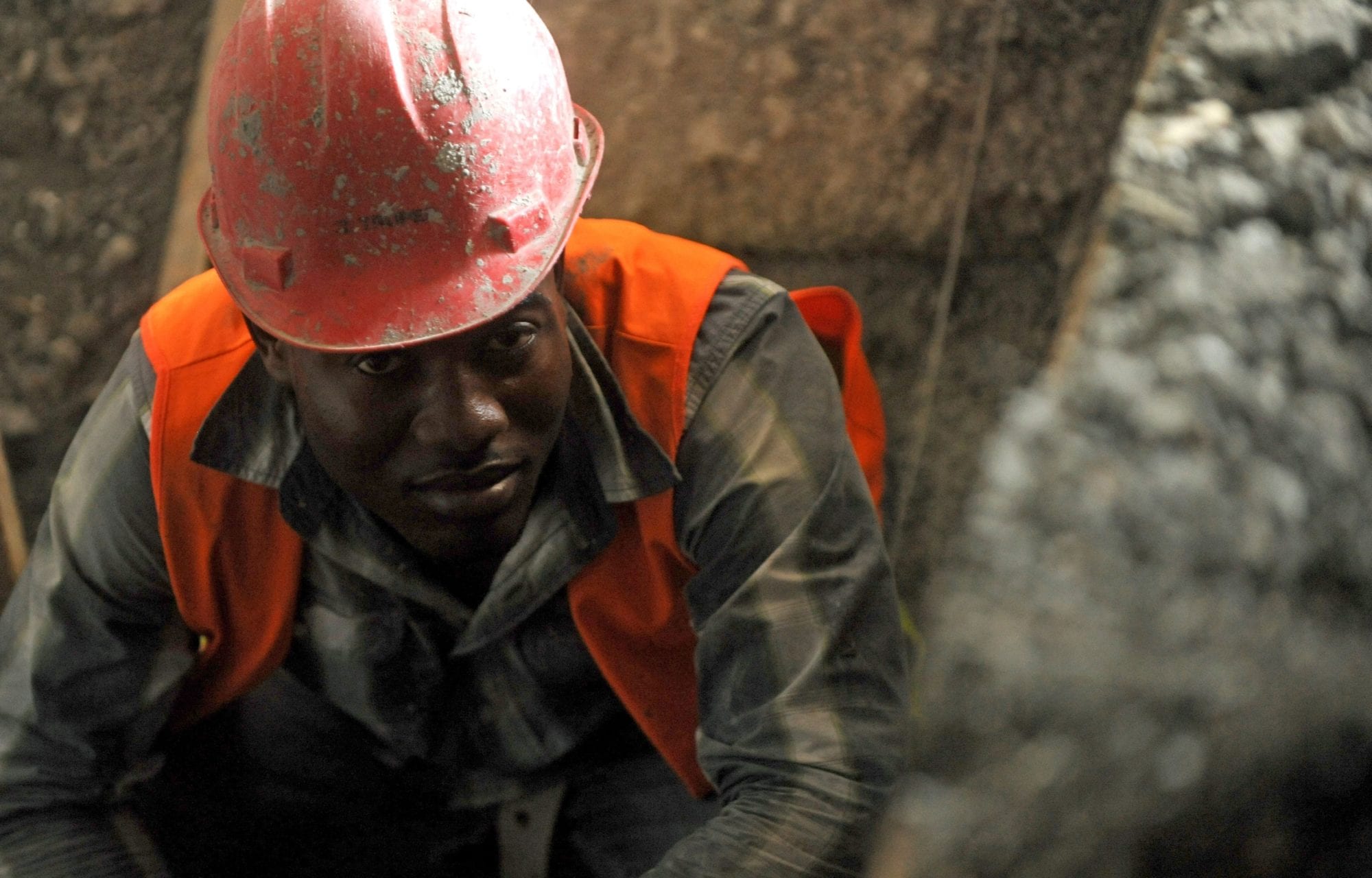
A construction worker in the Dominican Republic, where many workers are originally from Haiti. Credit: Solidarity Center/Ricardo Rojas
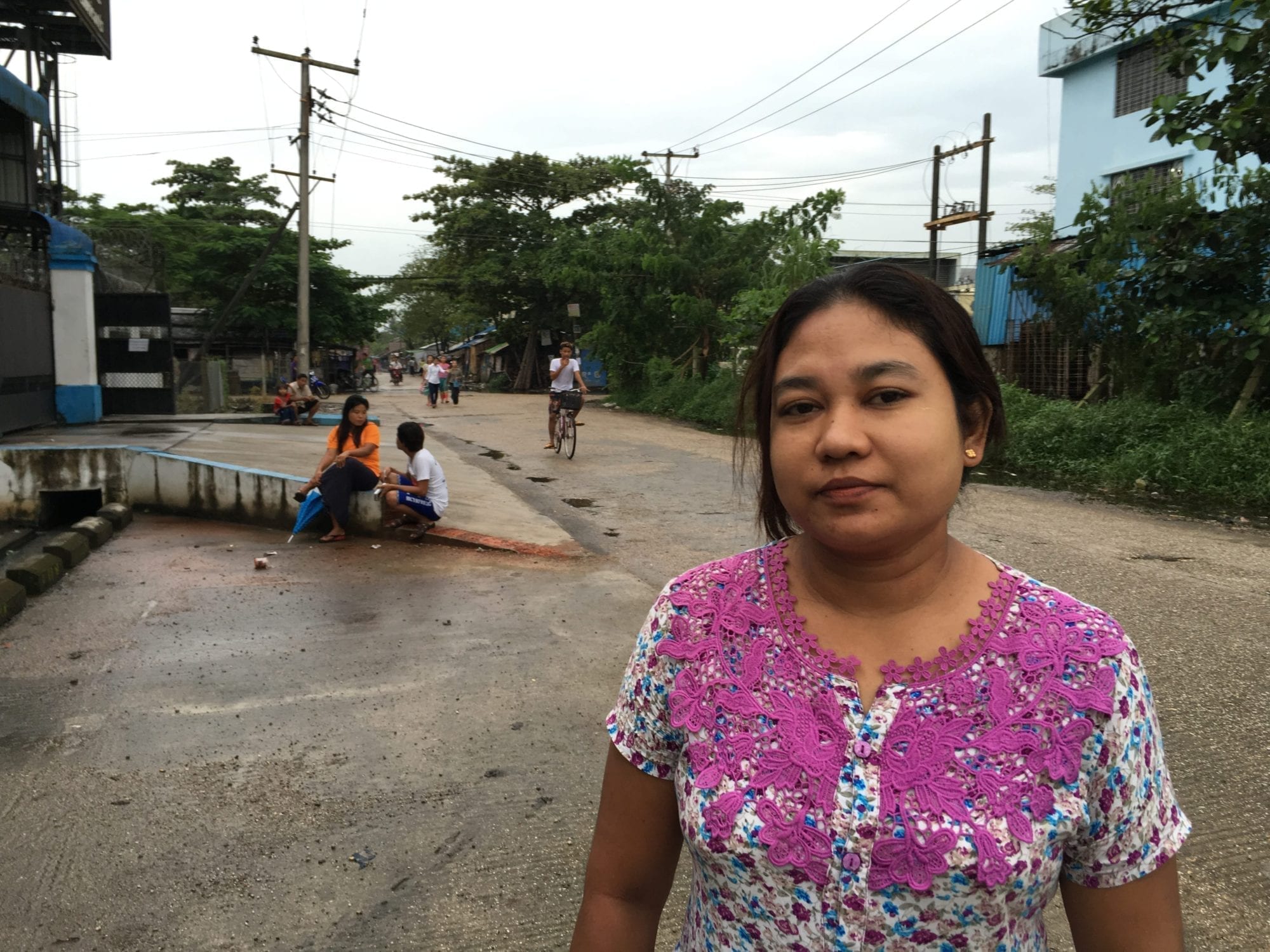
Many garment workers in Myanmar migrated from other parts of the country and from abroad. Credit: Solidarity Center/Tula Connell
DOMESTIC WORKERS
Domestic workers are often not recognized under national labor laws, which makes it difficult for them to exercise their assembly and association rights at work.
Domestic workers in many countries have made unprecedented strides in recent years in having their work legally recognized and securing their right to join unions.
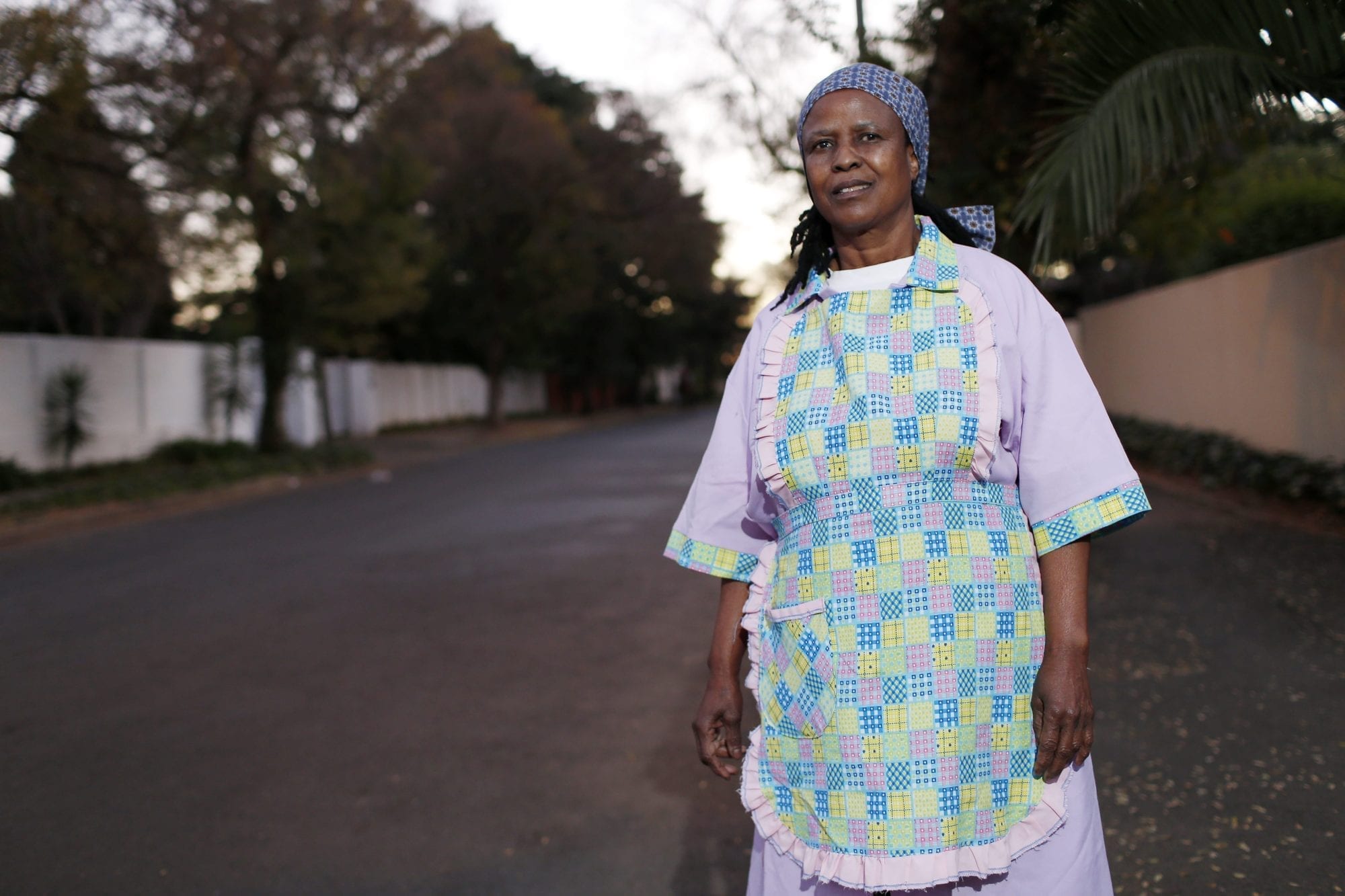
Salome Molefe is a domestic worker and union organizer in a suburb of Johannesburg, South Africa. Credit: Solidarity Center/Jemal Countess
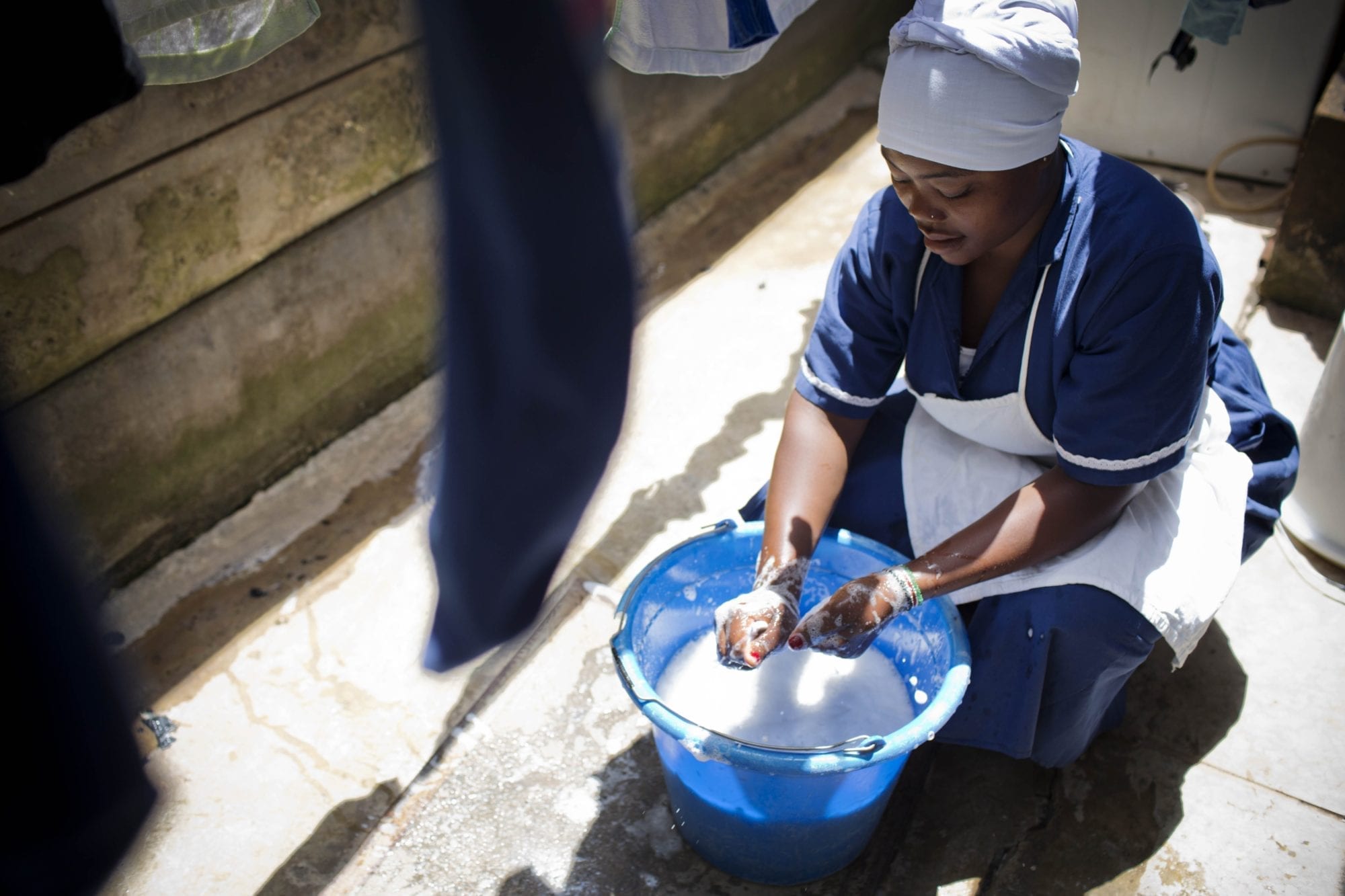
Unions in Kenya are helping domestic workers negotiate and enforce contracts with their employers. Credit: Solidarity Center/Kate Holt
WORKING WOMEN
Restricting the rights of workers also fuels gender inequality. Women in the global economy are often relegated to low-paying, low-skill jobs. Many women also experience gender-based violence in the workplace that prevents them from speaking up.
Working women are finding strength in unions where they can advocate for better wages and working conditions together.
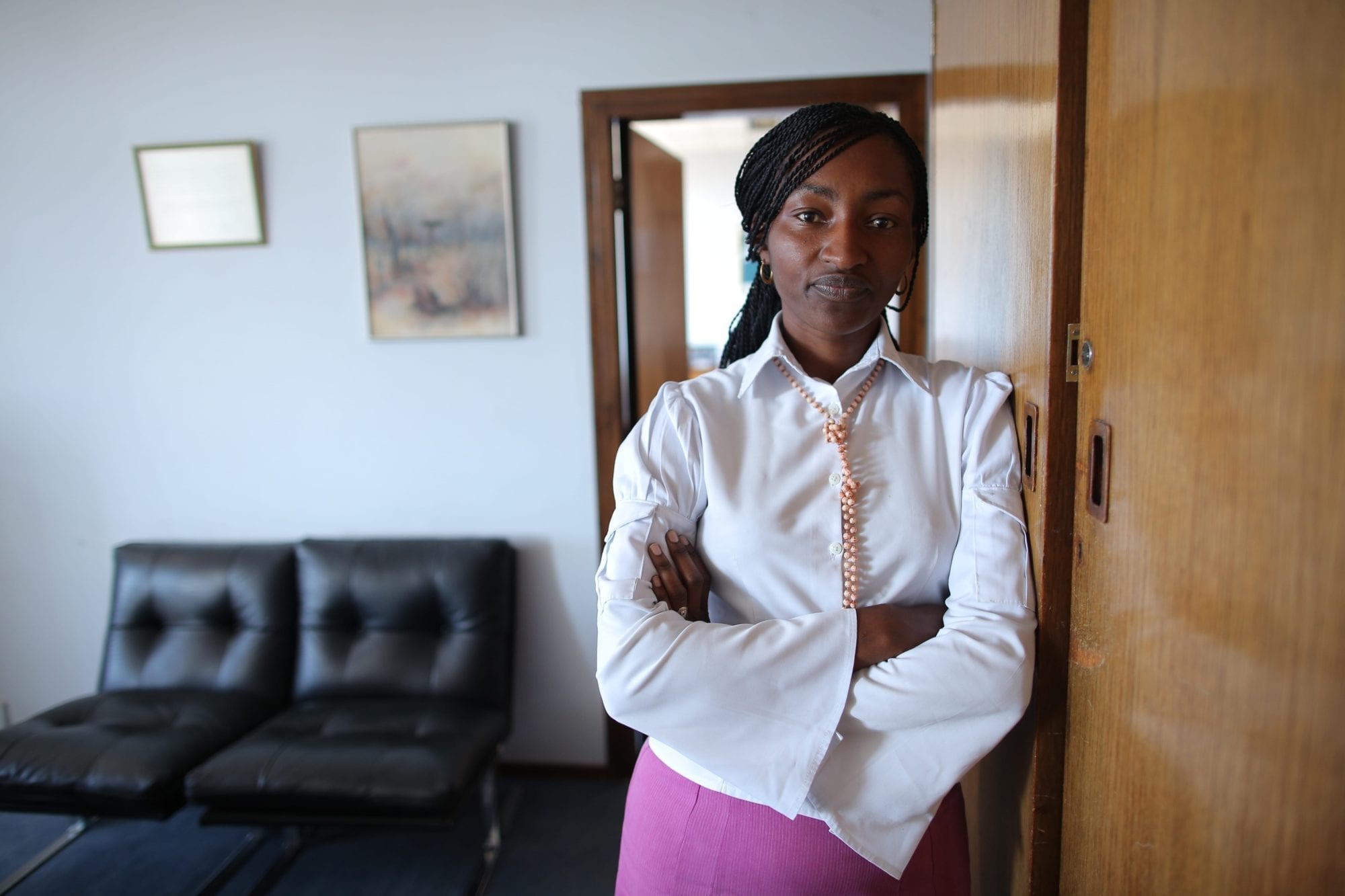
Dzidai Magada Mwarozva, Director of Human Resources at Phillips, now Destiny Electronics, a principle distributor of Phillips Electronics and Telecommunications products in Zimbabwe at the Phillips Facility in Harare on July 16, 2015.
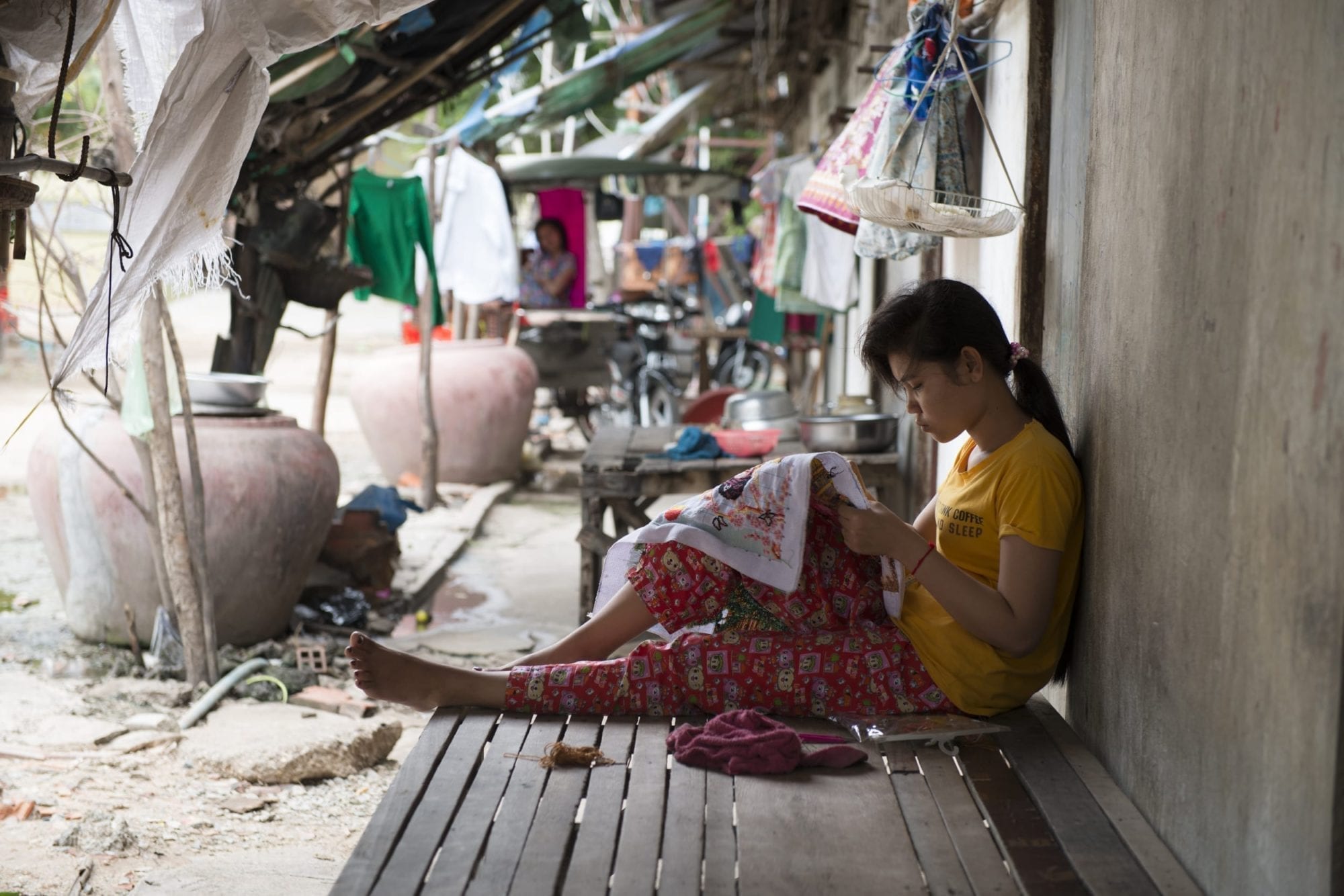
A garment worker in Cambodia. Credit: Solidarity Center/Claudio Montesano Casillas
TAKING ACTION
By standing up for their dignity and rights together, and in challenging the systems that undermine those rights, working people find collective solutions to local problems–as well as create pathways for change for other workers, across industries, borders and cultures.
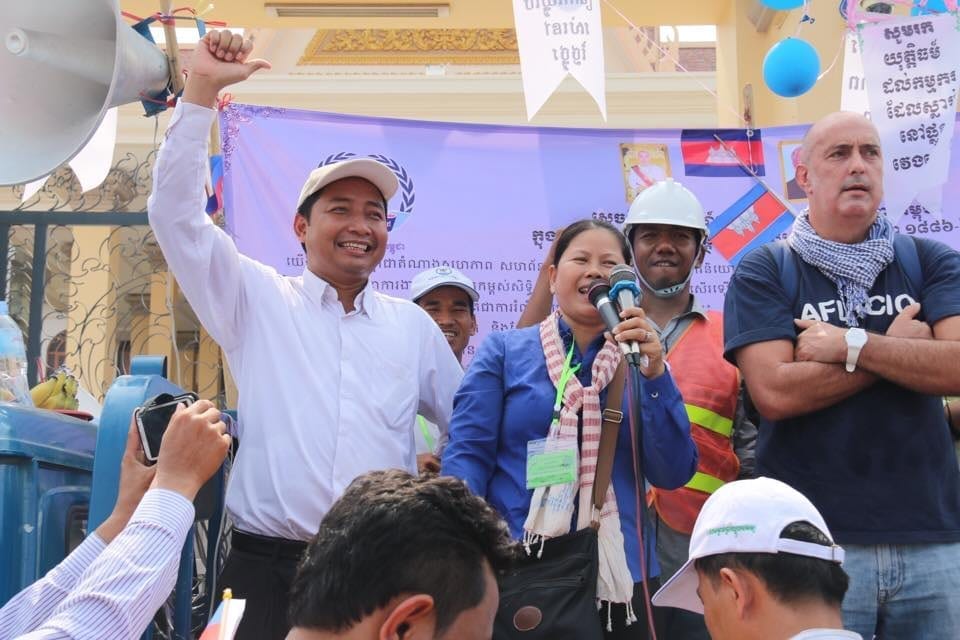
Unions in Cambodia rally for a living wage and the expansion of freedom of association. Credit: Solidarity Center/Tharo Khun
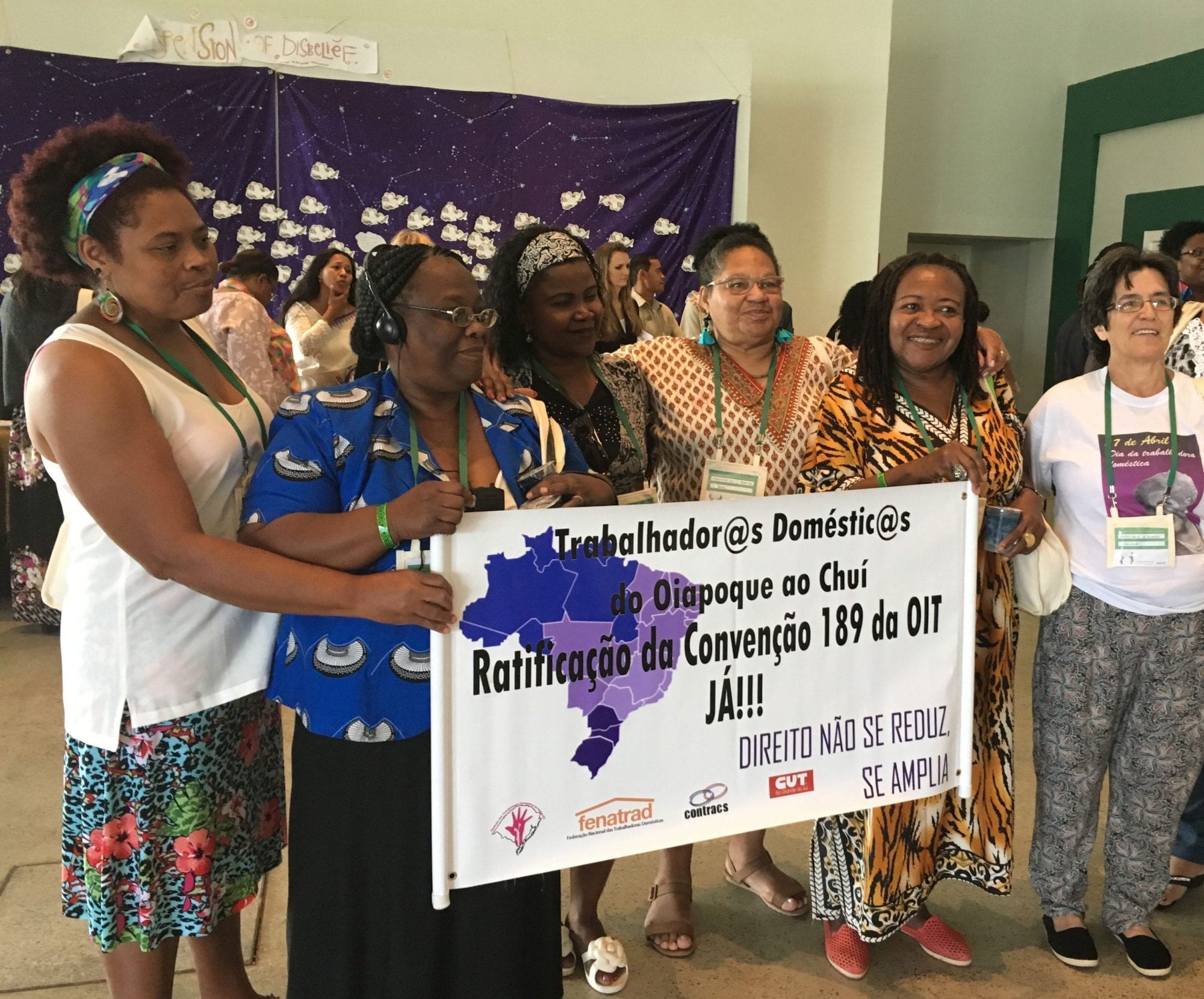
Domestic workers at the 2016 Association for Women’s Rights in Development (AWID) Forum in Brazil. Credit: Solidarity Center/Tula Connell
CREATING CHANGE
When workers’ freedom of assembly and association rights are protected, the relationship with their employer is more fair.
Unions and worker associations provide a collective voice on the job, helping to correct abuses, improve workplace safety and raise wages.
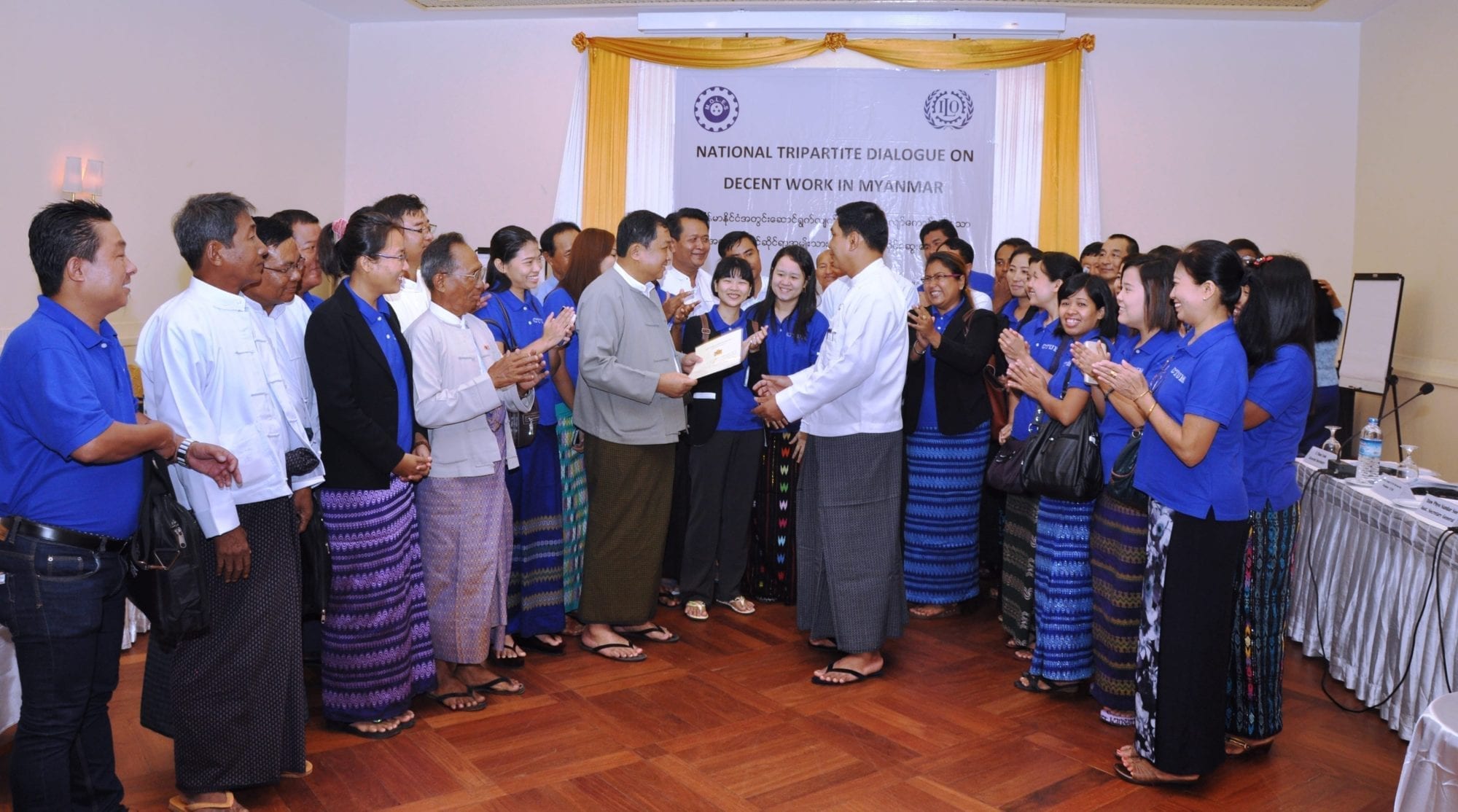
CTUM President Maung Maung accepts a certificate of registration for the union federation. Credit: CTUM
ACHIEVING DECENT WORK
The freedom to assemble and associate is the foundation for worker rights–and for all other rights, as they enable people to voice their interests, protect their dignity and hold governments accountable.
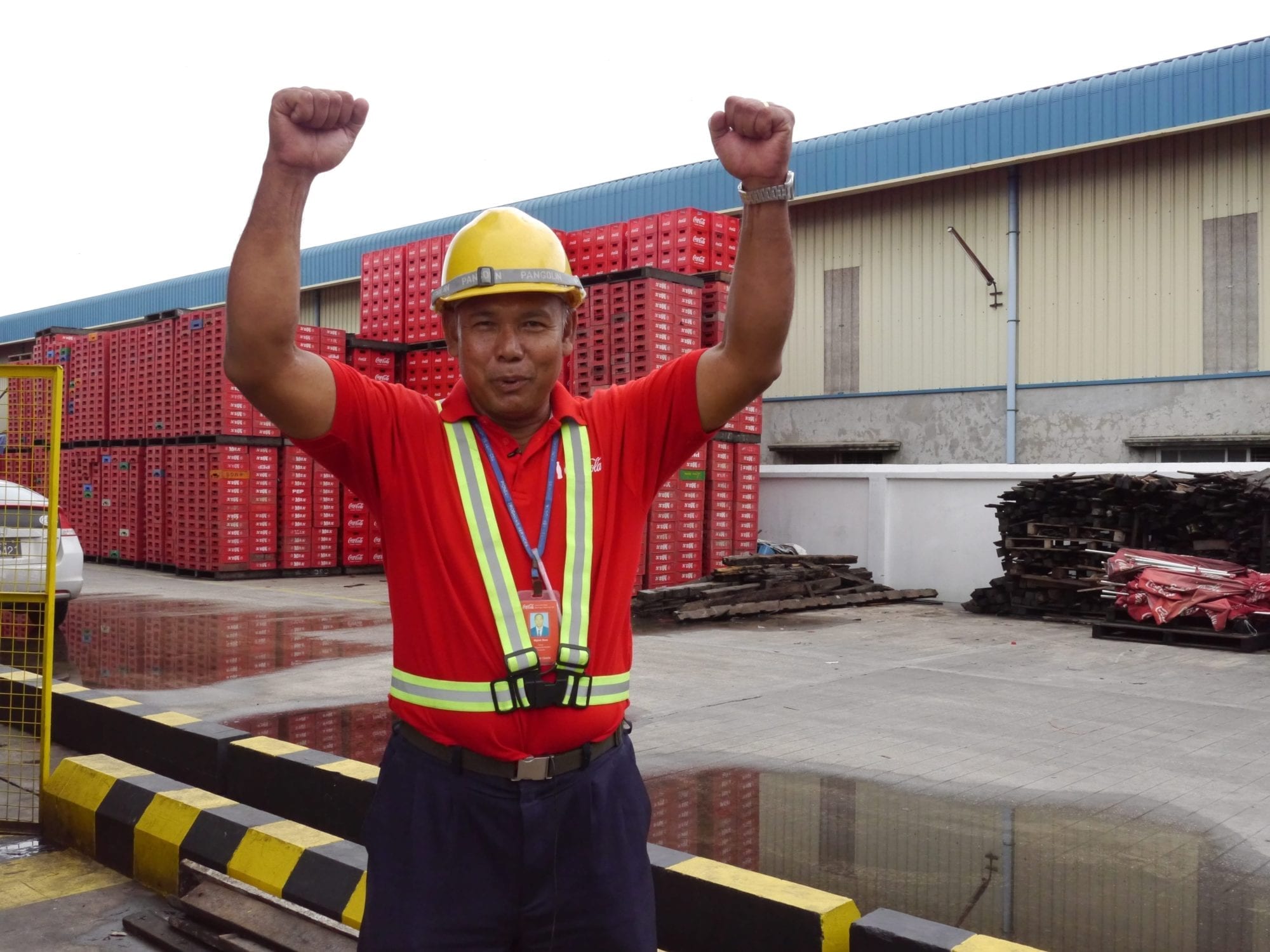
Coca-Cola factory workers in the Hlaing Thay Yar industrial zone outside of Yangon have formed a union with the Confederation of Trade Unions of Myanmar.
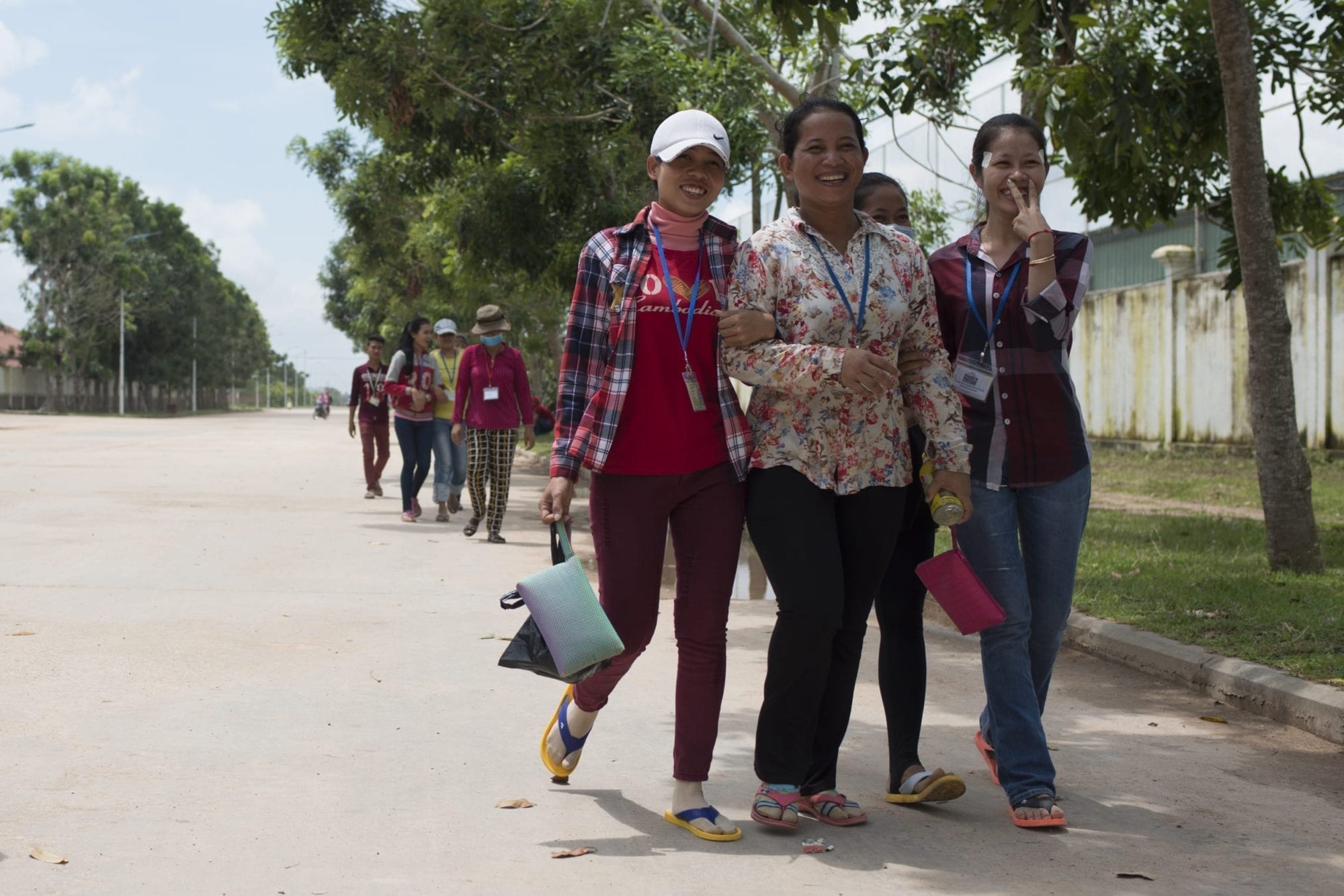
Garment workers in Cambodia. Credit: Solidarity Center/Claudio Montesano Casillas
PROMOTING FREEDOM OF ASSOCIATION
The Solidarity Center partners with workers and their unions around the world as they challenge restrictions on freedom of association and strive for greater equity in the global economy.
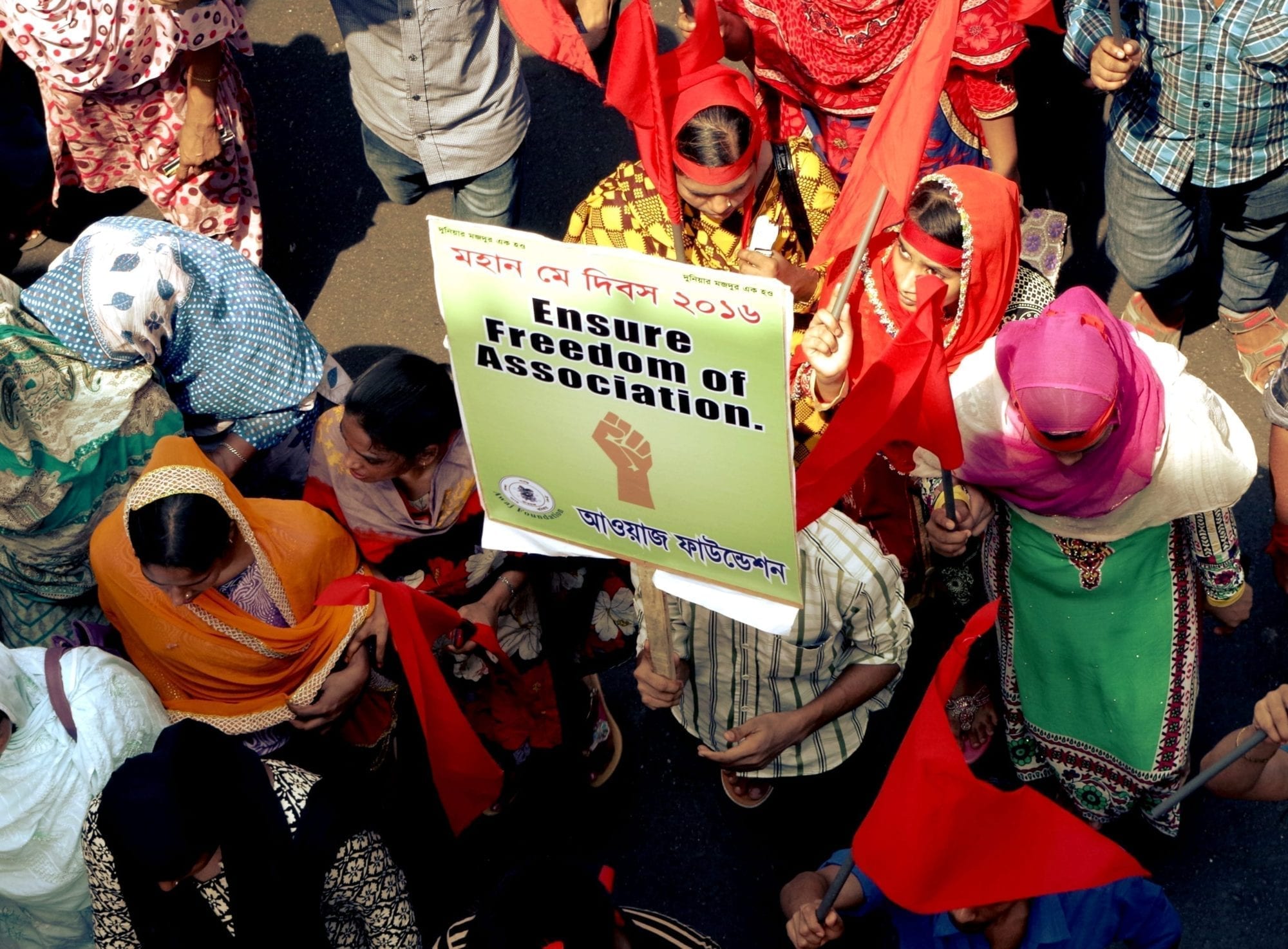
Workers in Bangladesh fight for the freedom of association on May Day 2016. Credit: Solidarity Center
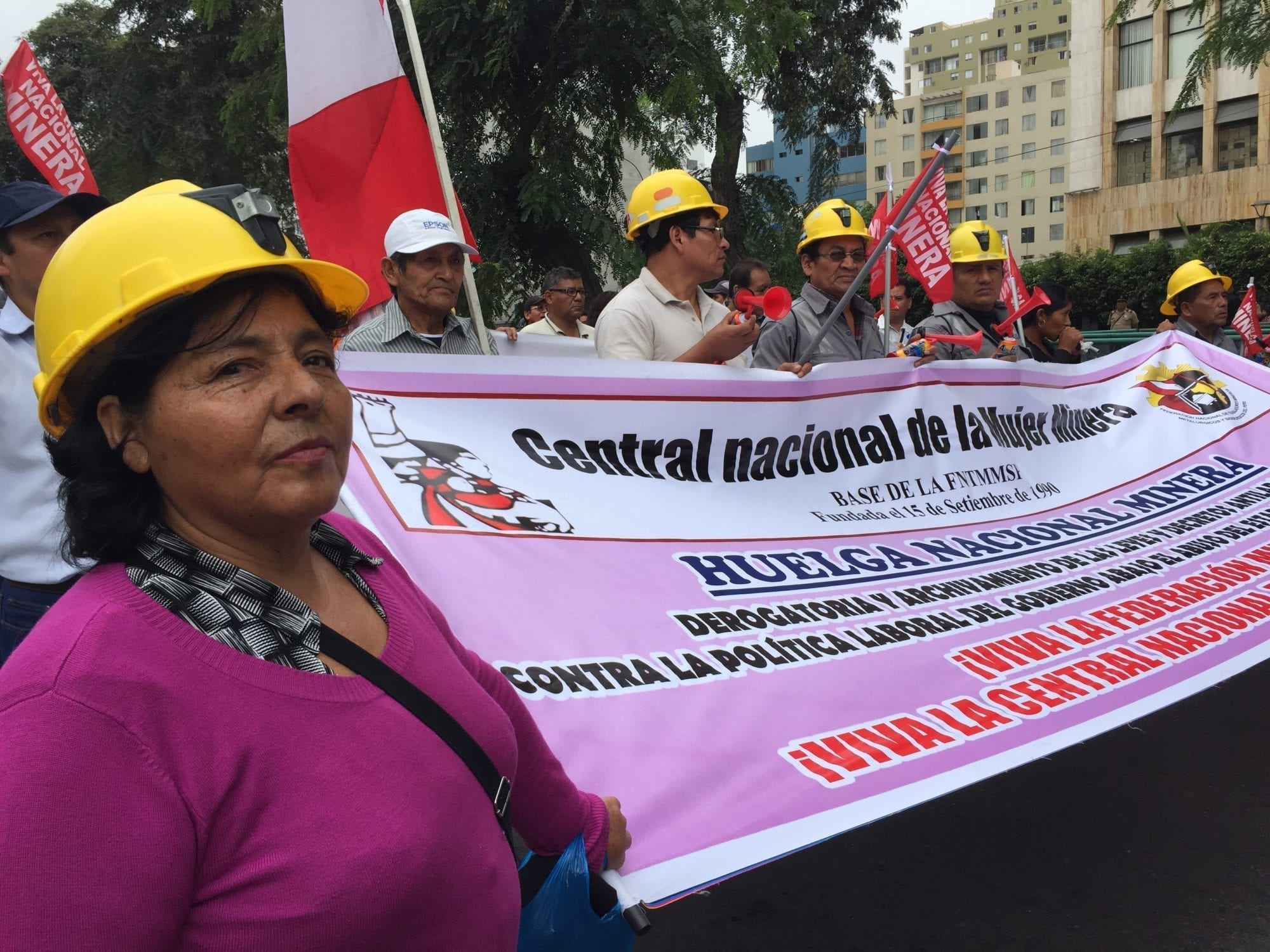
In Peru, tens of thousands of mineworkers call for an end to laws that facilitate mass layoffs. Credit: Solidarity Center/Samantha Tate
BUILDING A BETTER TOMORROW
When working people can exercise their basic rights, together they can challenge a global system of poverty and exploitation and achieve a brighter future for themselves and for their children.
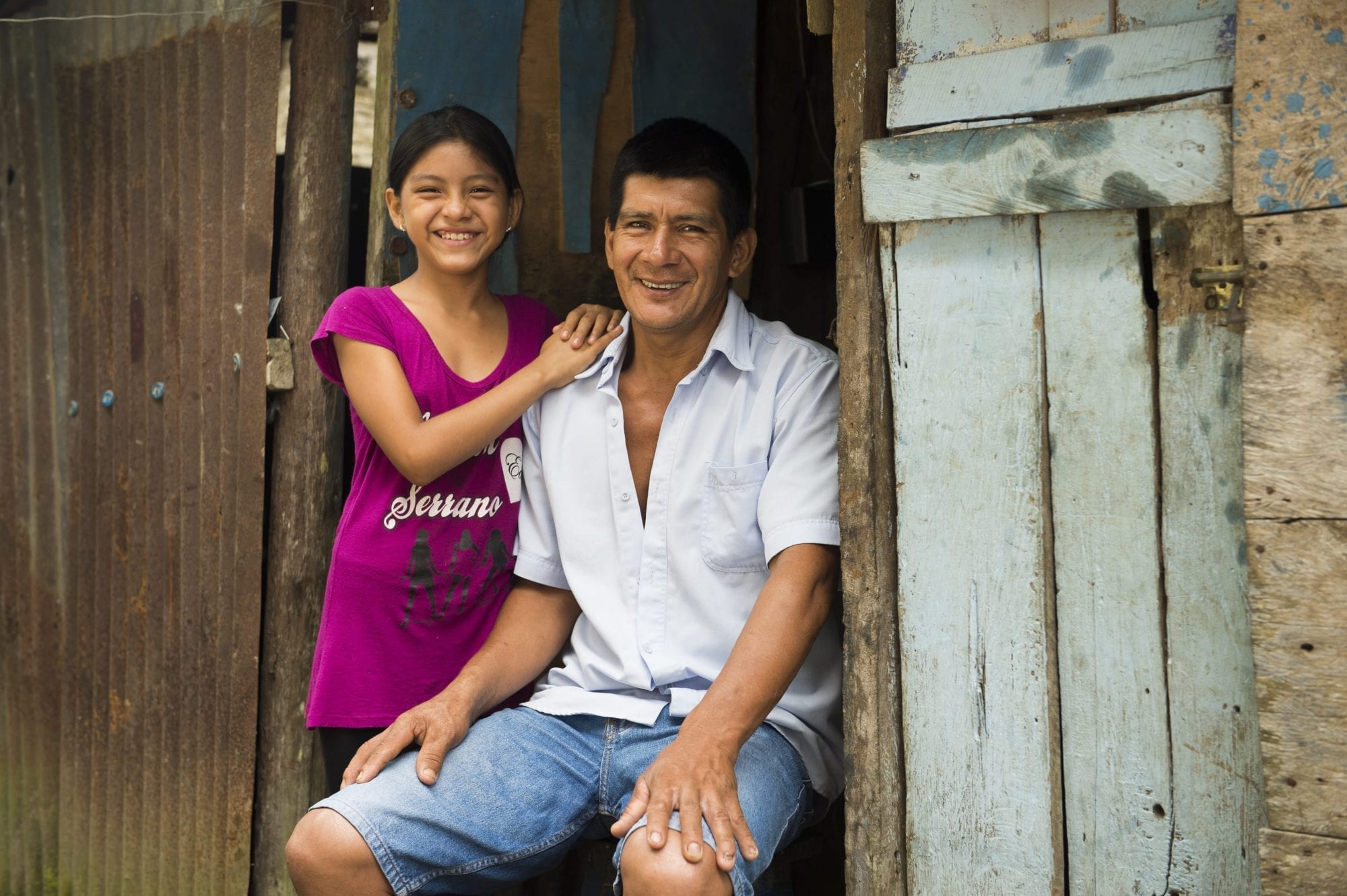
Demetrio, a palm worker on the Palmas del Espino plantation in Peru, with his daughter Emelia. Credit: Solidarity Center/Oscar Durand
ENGAGING IN INTERNATIONAL LAW TO PROMOTE CHANGE
National laws and company policies have contributed to inequality by systematically undermining the basic rights of the majority of the world’s workers. Most importantly, governments and corporations are denying workers their right to freedom of assembly and association, which prevents them from joining together to advocate for their rights, according to Maina Kiai, UN Special Rapporteur for the rights to freedom of assembly and of association.
“So many workers toil long hours for low wages in unsafe and unhealthy environments, risking disease, injury and death. They work without basic social protections such as health care, education, pensions or, in the case of trafficked workers, the right to choose or leave employment.”
– MAINA KIAI, UN SPECIAL RAPPORTEUR ON THE RIGHTS TO FREEDOM OF PEACEFUL ASSEMBLY AND OF ASSOCIATION
ENGAGING IN INTERNATIONAL LAW TO PROMOTE CHANGE
National laws and company policies have contributed to inequality by systematically undermining the basic rights of the majority of the world’s workers. Most importantly, governments and corporations are denying workers their right to freedom of assembly and association, which prevents them from joining together to advocate for their rights, according to Maina Kiai, UN Special Rapporteur for the rights to freedom of assembly and of association.
“So many workers toil long hours for low wages in unsafe and unhealthy environments, risking disease, injury and death. They work without basic social protections such as health care, education, pensions or, in the case of trafficked workers, the right to choose or leave employment.”
– MAINA KIAI, UN SPECIAL RAPPORTEUR ON THE RIGHTS TO FREEDOM OF PEACEFUL ASSEMBLY AND OF ASSOCIATION
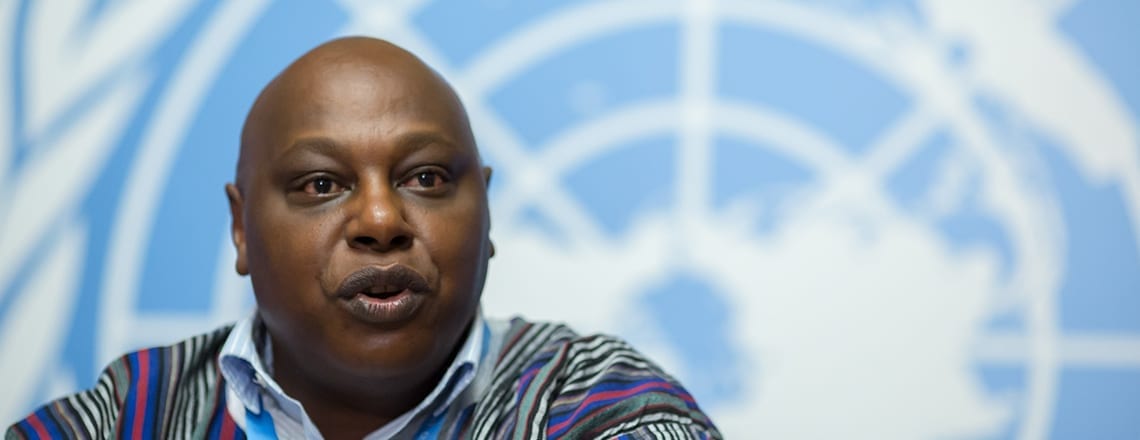
Maina Kiai presented his report to the United Nations in October 2016 in his capacity as Special Rapporteur on the Rights to Freedom of Peaceful Assembly and of Freedom of Association (May 2011 – April 2017). Credit: UN
To learn more about working people around the world and how the Solidarity Center supports their right to organize, visit www.solidaritycenter.org.

